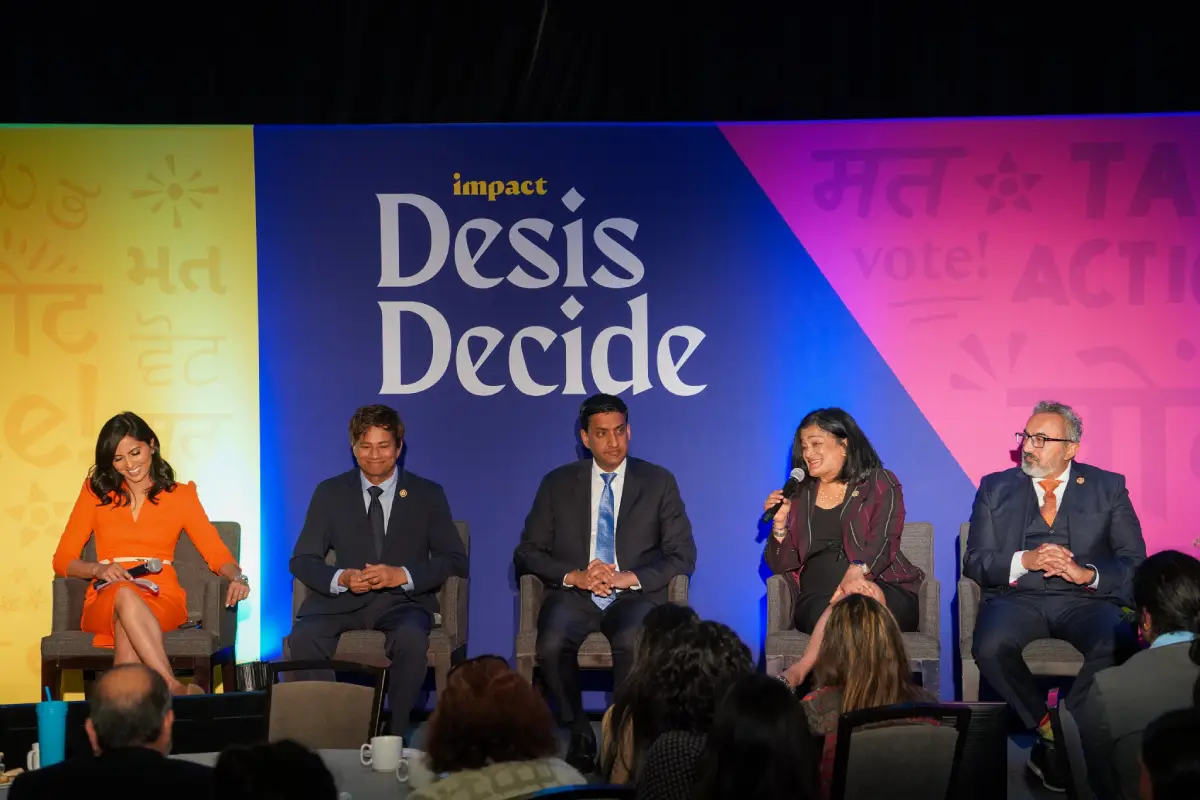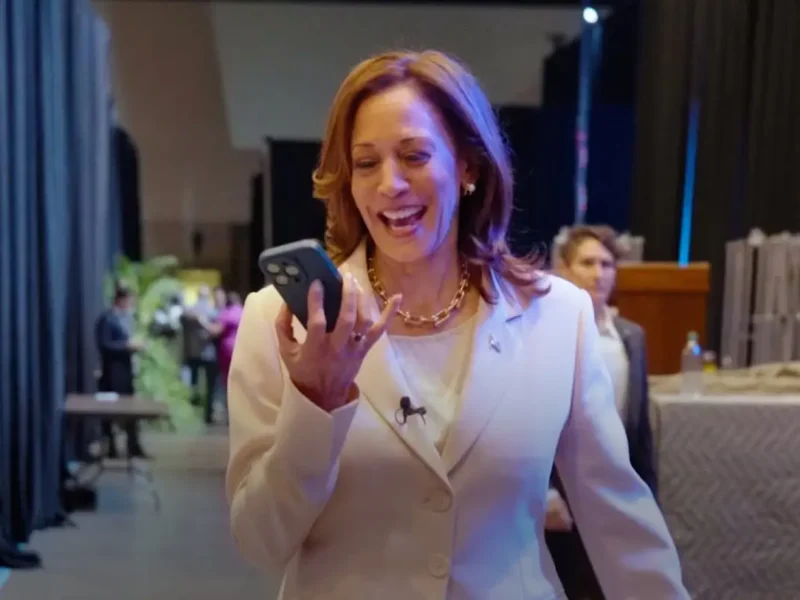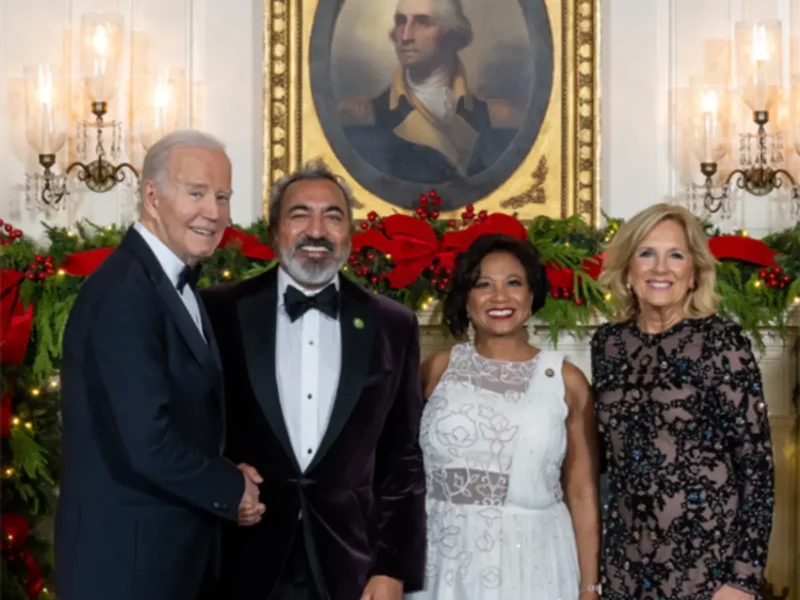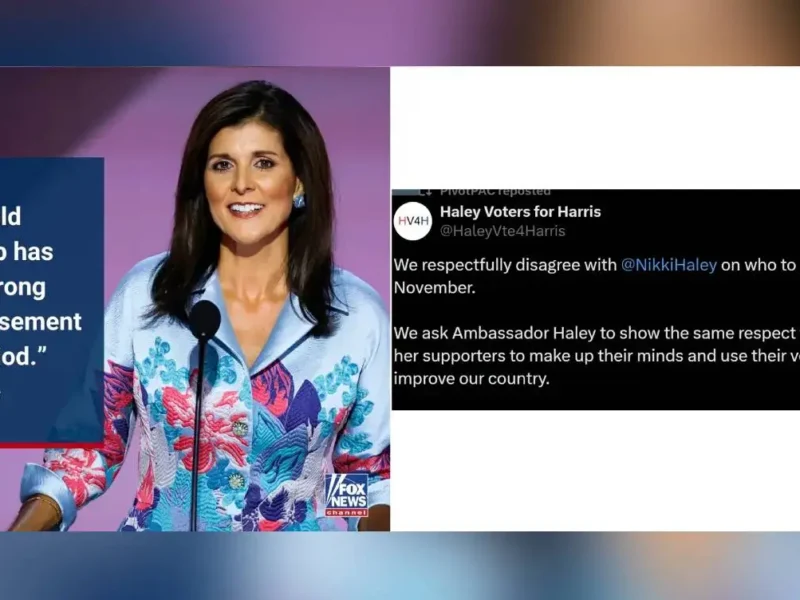Raising Human Rights Concerns In India Does Not Undermine Ties With US Say Lawmakers
Photo: @RepJayapal
India-West News Desk
WASHINGTON, D.C. – Indian American lawmakers emphasized their commitment to addressing human rights issues in India but noted that lecturing New Delhi on the matter is counterproductive. Instead, they advocated for a dialogue with Indian leaders to express their concerns constructively.
At the “Desi Decides” Summit of Indian American Impact on May 16, Congressman Ro Khanna, co-chair of the Congressional India Caucus, highlighted the need for a nuanced approach.
Joining Khanna in the panel discussion were lawmakers Shri Thanedar, Pramila Jayapal, and Dr. Ami Bera. Moderated by ABC national correspondent Zohreen Shah, the discussion touched on Prime Minister Narendra Modi’s relations with India’s Muslims.
Khanna suggested a more constructive approach: “Having a conversation about the imperfections in our democracy and India’s, and how to collectively advance democracy and human rights, is more productive.”
Bera echoed Khanna’s sentiments, stressing the importance of India’s secular nature. “If India loses its secular identity, it changes its essence and global perception,” Bera said. He however expressed concerns about press freedom and the viability of opposition in India. “A vibrant democracy requires freedom of speech, press, and opposition. I hope India’s democracy remains robust,” he added.
Pramila Jayapal agreed with Bera and Khanna, underscoring the responsibility to critique both domestic and international issues. “We shouldn’t lecture, but we must consider all U.S. interests, including values like freedom of religion and press,” Jayapal stated. She stressed that raising concerns about human rights aligns with American values and does not undermine U.S.-India relations.
Shri Thanedar supported a strong U.S.-India partnership, urging India to solidify its commitment to the U.S. “India should recognize its economic power and role in countering China’s aggression






Bipin A. Shah
/
Dear Editor:
May 17, 2024My message and question to all these Indo American Congressmen is to point out some specifics about Narendra Modi’s discriminatory or adverse policies towards India’s Muslims. In fact, it was several Muslims and their leaders that started criticizing Mody from the day he took office as PM. All the changes he has made like removing Triple Tallaq, changes in the Citizenship act to grant Indian citizenships to the minorities in neighboring Muslim countries and the abrogation of article 370 are all positive steps that do not affect Indian Muslims in any negative manner – unless some of them think that getting rid of Triple Tallaq is a bad move!!
India’s Election commission and the Supreme court are very independent (in fact better than the US Election process and methods) and my frequent visits to India do not indicate that the press is muzzled in any way. So, to convince supporters of Modi like me and many others and going by election outcomes so far, these congress members need to state their case with some specific data and examples and not jut express their feelings. As of now, based on election results of 2014, 2019 and soon to be 2024 they are a minority voice until they produce some factual evidence. It is true that this government is not pursuing vote bank politics like its predecessors and that may make some of the minorities unhappy but that is not any form of discrimination. Future policies like Uniform Civil Code are absolutely good for the long term survival of democracy in India and again the Muslims may not like it but in a good secular democracy, the laws should be the same for any citizen of any religion. In fact, even the majority of Muslims should agree with that.
Sincerely,
Bipin A. Shah – Lafayette, CA
Freeone
/
Do not remember anyone holding any discussion about Pakistan’s Hindu population reduced from 23% in 1947 to currently less than 3%.
Do not remember anyone holding any discussion about the US killing more than 1M Muslims in Afghanistan and Iraq, sometimes carpet bombing in recent wars.
Do not remember anyone holding discussion about US and other western countries allowing known terrorists to settle in their countries and threatening Hindu citizens of those countries.
These guys – Bera, Thanadar, Khanna, Jaypal (and Krishnamoorthi) – voted to not allow any Hamas entering US, but nothing about other terrorists, specially from India. Some of these known terrorists are even recruited by CIA to make trouble in India.
May 18, 2024Paul Singh
/
There is no such thing as a “ perfect democracy”. It is a work in progress. US is the oldest democracy almost 250 years and it still has lot of issues such the deep rooted racism against the African Americans, Hispanics and Native Indians. The jails are full of male blacks and Hispanics. So many blacks are wrongfully sentenced to death and found to be innocent after decades behind bars. The plight of Native Americans is disgraceful.
May 19, 2024One of the leading Presidential candidates recently declared: “ immigrants are poisoning our blood”.
So we Americans should not throw stones when we live in a glass house. This is my message to the Indian American congressmen and other politicians: fix your own house first before pointing fingers at India which is the largest democracy and only 75 years old. India is a country of 1.4 Billion people of multiple ethnicities, cultures, languages and religions. India will solve its issues in its own ways and timing.
Geeta Sikand
/
Agree with the comments above by Freeone and Paul Singh.
May 19, 2024Importantly, Indian American Congressional Representatives Ami Bera, Ro Khanna and Pramila Jaypal’s unrelenting vilification of India’s pluralistic democracy is based on deliberate subversion by the media of the recent PEW research findings that showed 90% of minorities feel free to practice their religion in India. When will this journalistic malpractice stop?
Pradeep Srivastava
/
According to house.gov, the role of a U.S. House of Representatives is as follows:
“As per the Constitution, the U.S. House of Representatives makes and passes federal laws. The House is one of Congress’s two chambers (the other is the U.S. Senate), and part of the federal government’s legislative branch. The number of voting representatives in the House is fixed by law at no more than 435, proportionally representing the population of the 50 states.
Also referred to as a congressman or congresswoman, each representative is elected to a two-year term serving the people of a specific congressional district. Among other duties, representatives introduce bills and resolutions, offer amendments and serve on committees. The number of representatives with full voting rights is 435, a number set by Public Law 62-5 on August 8, 1911, and in effect since 1913. The number of representatives per state is proportionate to population.“
Why are Indian American U.S. House of Representatives concerned about the internal affairs of India, in the first place? I t should be the job of the Secretary of State to deal with international issues. Why don’t those Indian American Representatives focus on US issues for which they were elected? Just because they have affinity with India doesn’t give them a right to interfere with the internal affairs of India. Besides, focusing on Indian issues has the adverse effect of neglecting US issues. Let Indian politicians take care of Indian issues and let the US politicians focus on the U.S. issues.
May 20, 2024